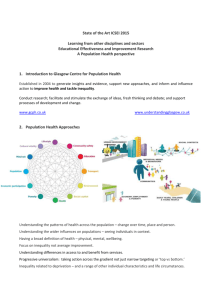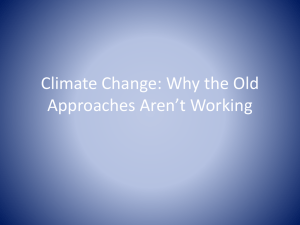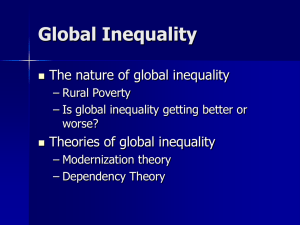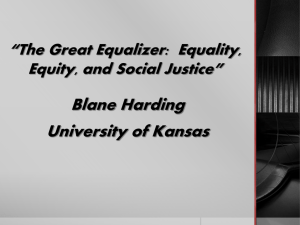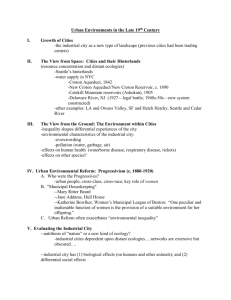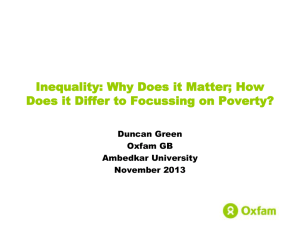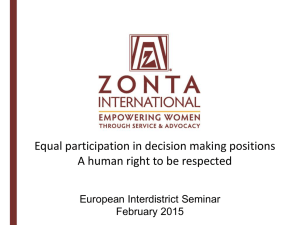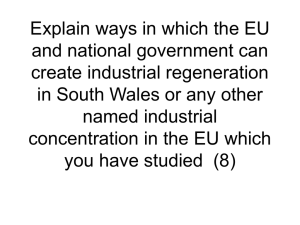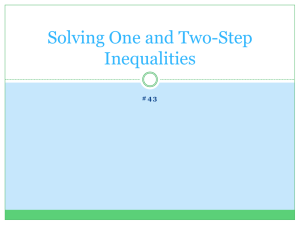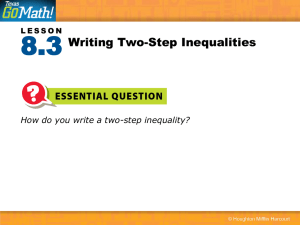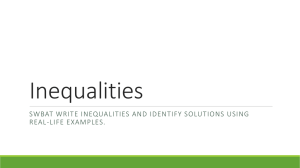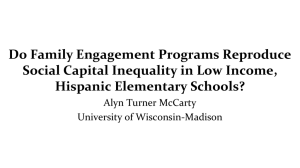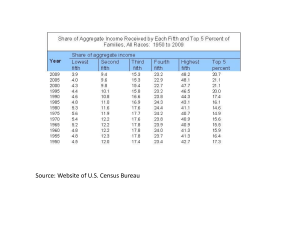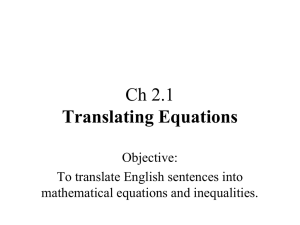Reclaiming Social Work: Challenging the Market and Inequality
advertisement
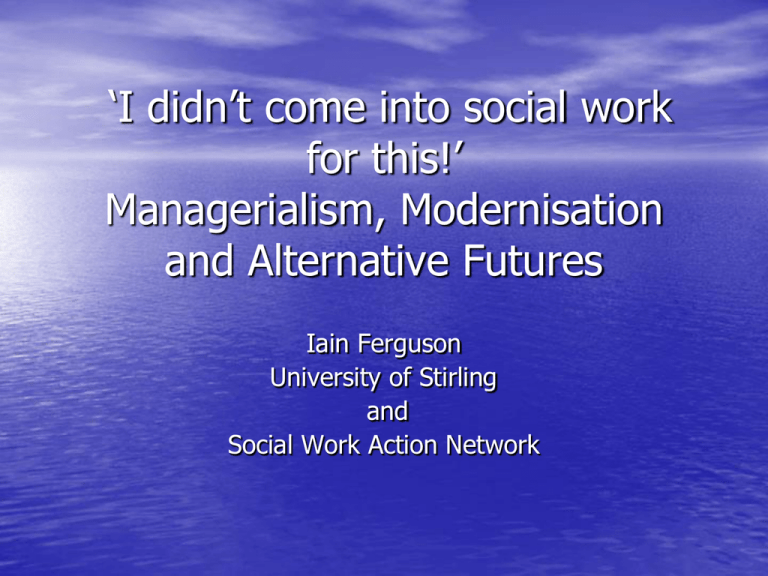
‘I didn’t come into social work for this!’ Managerialism, Modernisation and Alternative Futures Iain Ferguson University of Stirling and Social Work Action Network Miss Earth 2010 – a ‘modern’ beauty contest? ‘Modernising the traditional focus of the "beauty pageant" and bringing beauty contests firmly into the 21st century, the main focus of the event is to empower the entrants to focus on and promote environmental awareness. During their participation, the girls plant trees, raise funds for their own chosen charities, attend environmental activities, act as spokeswomen for environmental thoughts and educate people on green issues, in particular the three Rs (reduce, reuse and recycle)’. (Press Release, Miss Earth 2010) Cutting Public Services ‘There is a sense of liberation that we are going to empower public sector professionals to undertake the reform’, Philip Hammond, Shadow Chief Secretary to the Treasury, (The Guardian , 25th July) Inequality in the UK • ‘Britain has been slowly moving back in time – to levels • of income inequality that prevailed more than half a century ago and to levels of wealth inequality of more than thirty years ago’ (Lansley, 2006: 29) Inequality matters: ‘almost all social problems which are more common at the bottom of the social ladder are more common in more unequal societies’ (The Spirit Level: Why More Equal Societies Almost Always Do better, Wilson and Pickett, 2009) • Inequality and ‘social pain’: increased levels of homicide, mental illness, teenage pregnancies and obesity Neo-liberal globalisation and social work • Globalisation, Global Justice and Social Work • • (Ferguson, Whitmore and Lavalette, 2004): Argentina, Mexico, India, Senegal, France, Britain, Australia, Canada, USA ‘Contingent on context’ but no country unaffected: from impact of Structural Adjustment Programmes to ‘the mixed economy of care’ Neo-liberal social work: the experience of the UK Defining managerialism ‘The idea that managers should be in control of public organisations and that they should run these organisations in line with business principles and concerns (Evans, 2009). Social work with people? The Vanishing Relationship • Reduction of social work to care management, • • coupled with the contracting out of direct work to private or Third Sector organisations; Reliance on IT, with one recent study finding that children and families social workers in the UK now spend between 60 and 80 per cent of their time sitting in front of computers; Severe lack of resources, meaning that workers continue to carry very high caseloads and that a service is only offered to those who meet extremely high eligibility criteria. Doing neoliberal social work (1) "Being a care manager is very different from being a social worker as I had always thought of it. Care management is all about budgets and paperwork and the financial implications for the authority, whereas social work is about people. That’s the crucial difference.“ (Jones, 2004) Doing neoliberal social work (2) ‘The focus of social work has become entirely procedural and the meaning of the work has been lost. The needs of children have become secondary to the needs of agencies protecting them. The contents of assessment appear insignificant as agencies are far more concerned about whether they are completed on time’ (Cited in UNISON, 2009) Protecting vulnerable adults and children? • The case of Baby ‘P’ • Prioritisation of management skills over • • • therapeutic skills Reduction of complex issues of relationship, personal biography and structural poverty to tick- box computerised assessments Elevation of centralised targets over addressing urgent human need ‘What works?’ doesn’t work Reclaiming Social Work • 1960s/1970s: crisis of social work - led to emergence of ecological approaches and radical approaches • ‘Another social work is possible’ • Based on: • Centrality of relationship Rediscovery of collective approaches and emphasis on social justice Learning from experience of service user movements Emphasising society’s responsibilities as well as individual responsibilities Collective discussions of practitioners, service users, academics and social movement activists The Social Work Action Network • ‘I didn’t come into social work for this’ – Glasgow, 2004. • The Social Work Manifesto (www.socialworkfuture.org) • UK-wide conferences: Liverpool (2006), Glasgow Caledonian (2007), Liverpool Hope (2008), Bath (2009). • Challenging the scapegoating of social workers: the Baby P Case. • Developing the national (and international network). Defending Asylum Seekers in Glasgow
